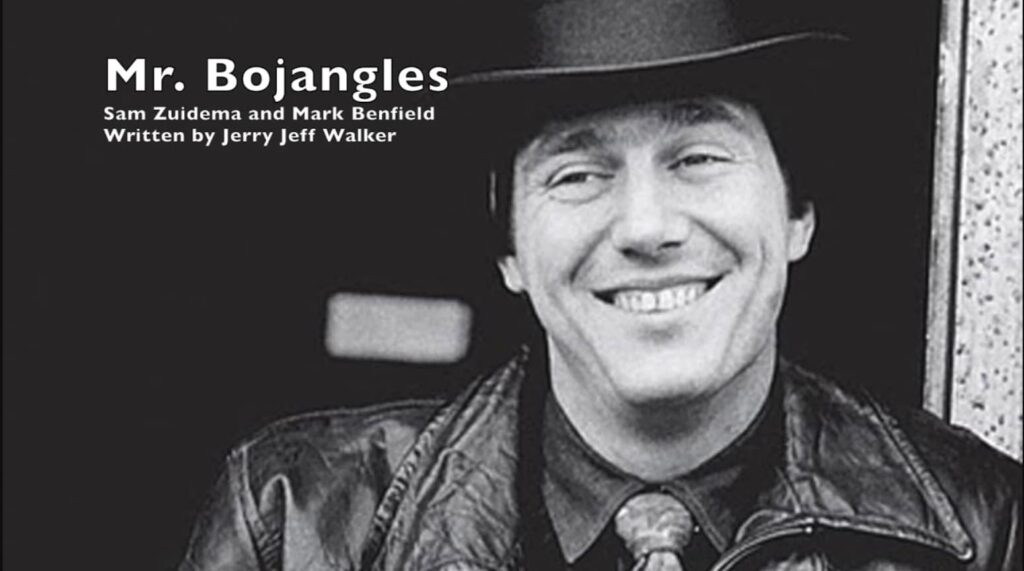
Jerry Jeff Walker – “Mr. Bojangles”: A Wistful Waltz of Lost Souls and Unbreakable Spirit
Ah, “Mr. Bojangles.” The very name of this song, written and first recorded by the quintessential Texas ‘outlaw’ songwriter Jerry Jeff Walker in 1968, carries with it the distinct, melancholic scent of time past, of late nights, dimly lit bars, and the profound, often unspoken understanding found among fellow travelers on life’s more rugged roads. For those of us who came of age with the folk, country, and rock sounds of the late 60s and early 70s, this tune isn’t just music; it’s a shared memory, a poignant narrative woven into the fabric of our youthful wanderings and reflections.
The core of the song’s enduring power, its heart-rending sincerity, lies in its true-life origin story. The narrative is as simple as it is powerful: the narrator, Walker himself, recounts meeting a fellow inmate while locked up in a New Orleans jail for public intoxication back in 1965. This older, homeless man, a worn-out hoofer, used the moniker “Mr. Bojangles” to conceal his real identity from the police. The cellmates passed the time chatting, but the mood turned somber when the old dancer spoke, through tears, of his faithful dog who had died twenty years prior. To lighten the heavy air, someone suggested a dance, and the old man rose, shaking his ragged clothes, and performed a “soft shoe” dance, clicking his heels across the cell.
Walker’s original single, released in 1968, did manage to chart, peaking at No. 77 on the U.S. Billboard Hot 100 and No. 51 on the Canadian RPM Top Singles chart. However, its true destiny as an American standard was sealed by others. It was the cover version by the Nitty Gritty Dirt Band in 1970, with its folk-rock harmonies and signature Americana arrangement, that truly propelled the song into the mainstream, hitting No. 9 on the Billboard Hot 100 in 1971. But the version that perhaps cemented its theatrical and emotional legacy belonged to the legendary Sammy Davis Jr. in 1972, who made it a show-stopping, soulful centerpiece of his live performances. For many, including me, hearing Davis Jr. deliver those lines—a master performer singing about a forgotten one—added layers of complex emotional resonance.
The enduring meaning of “Mr. Bojangles” is multifaceted, touching on themes that resonate deeply with anyone who has lived long enough to accumulate both joy and sorrow. It’s a beautifully melancholic meditation on transience and resilience. The character of Bojangles is an emblem of the dignity found in the face of absolute hardship. He’s a man who has lost everything—his dog, his stability, perhaps even his true name—yet he retains the ability to perform, to momentarily transform a dreary jail cell into a stage, offering a glimpse of grace through his dancing. The song acknowledges the pain of a life spent traveling and drinking (“most the time I spend behind these county bars / ’cause I drinks a bit”), but it refuses to let that define him entirely.
It’s the juxtaposition of the jaunty, waltz-like rhythm with the profound sadness of the lyrics—that descending bass line in the verses—that makes the song a masterpiece of bittersweet reflection. It’s an ode to the outcasts and the dreamers, the ones whose stories are often untold, reminding us that every life, no matter how ragged, holds a poetic, unforgettable history. When I hear that familiar melody, I don’t just hear a song; I hear the echo of countless shared moments, of human connection forged in the most unlikely of circumstances. It calls to mind the faces of every memorable, slightly broken character we’ve ever encountered who left an indelible mark on our journey. It’s a beautiful, gentle reminder of what it means to be human—to grieve, to remember, and to dance anyway.